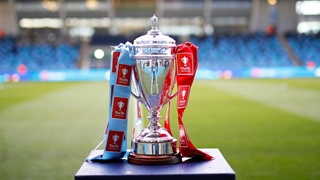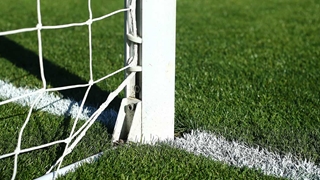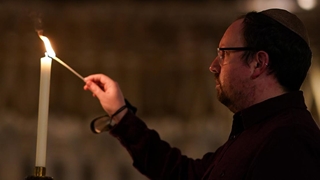
Since coming into being in the 1952-53 season, The FA Youth Cup has mirrored the importance of its parent competition, becoming the most desirable trophy among all U18 sides across the country, retaining that premier position throughout all the seismic changes that youth football has undergone over the last half a century and more.
In terms of its organisation, it shares many similarities with The FA Cup itself, not least in allowing non-League clubs an opportunity to put their youth sides into the qualifying stages of the competition. And yet had it evolved as it initially seemed it might, that would not have happened, for the concept of a youth cup competition initially came from Sir Joe Richards, who initially proposed it within the Football League structure.
The idea was not especially well received but, undeterred, Richards took his brainchild to The Football Association and they had the foresight to realise that here was an idea with legs.
In fact, The FA had already instituted a similar competition just after the end of the war, though this was a Youth Championship based on County Associations, as this had been the way in which many youngsters had tended to come to the fore before hostilities broke out. But as football became increasingly organised at club level and as professional clubs were running more and more teams down the age groups, it made greater sense to create a competition run on club lines.
Such a competition needed a trophy and, in keeping with the idiosyncratic way in which it had come into being, the silverware did not come from the most conventional source either. Again, it began life within the remit of the Football League, the trophy having been purchased by them during the war, though they had yet to find any use for it. On discovering it in a cupboard, gathering dust, it was handed over to the FA for their new youth competition.
West Ham 1964 (Youth team- front two rows)
If The FA Youth Cup is synonymous with any football club, it is Manchester United, eleven-time winners and the club that has produced perhaps the two best known youth sides in English football history. It’s appropriate therefore that the FA Youth Cup was first won by the most legendary team of them all, the Busby Babes.
They reached the 1952-53 final, dismissing Nantwich 23-0 in one game along the way, and were faced with Wolverhampton Wanderers over two legs, Wolves themselves a heavyweight club of the time. More than 20,000 fans turned out at Old Trafford to watch the first leg, inspired by tales of this exciting new group of footballers that included the likes of Duncan Edwards, Albert Scanlon, Dave Pegg and Billy Whelan. United were simply too good for the Midlanders, winning 7-1 before seeing the game out at Molineux with a 2-2 draw to collect the trophy 9-3 on aggregate.
Those Busby Babes, later joined by the likes of Bobby Charlton, Wilf McGuinness and Eddie Colman, dominated the competition in its early days, winning each of the first five competitions, defeating Wolves again the following year, then West Bromwich Albion, Chesterfield and, in 1957, West Ham United, by which time most of those young players have graduated to the first team and, in many cases, their international teams, only to be tragically lost in the snows of Munich in February 1958.
Although United finally relinquished their hold on the trophy in the year of that tragedy, the seeds of their rebirth were still coming through the youth team in the form of Nobby Stiles and John Giles. But it was Wolves who finally got their hands on the trophy in an extraordinary final, losing 5-1 to Chelsea, Jimmy Greaves and all, at Stamford Bridge in the first leg before overturning it with a 6-1 win at Molineux to take the cup 7-6 on aggregate.
Chelsea bounced back from that to triumph in 1960 and 1961, employing talented youngsters such as Terry Venables, Peter Bonetti and Bobby Tambling along the way, but the 1960s was a decade when the trophy tended to be shared around, no side really dominating proceedings.
Manchester United won the cup again in 1964 when they had a young lad called George Best – already a first teamer by then - playing for them as they overcame Swindon Town 5-2, but it was Sunderland who had the best run in the ‘60s, runners up to Arsenal in 1966, then winners in 1967 and 1969. It was a golden period for the youth system on Wearside, producing the likes of Bobby Kerr, Billy Hughes, Colin Suggett, Richie Pitt and Dennis Tueart, all of them cutting their teeth in The FA Youth Cup.
1971: Arsenal youth team carrying the Youth team FA Cup
The tournament came to be a real predictor of the sides that would go on to flourish in the senior competition. Sunderland memorably won The FA Cup in 1973 when still a Second Division side, while Ipswich were Youth Cup winners in 1973 and 1975 before taking the big trophy in 1978, a year when they defeated West Bromwich Albion, the Youth Cup winners of 1976, in the semi-final.
Crystal Palace, soon to be the much vaunted “team of the eighties”, started to make their presence felt in the late ‘70s, carrying off the Youth Cup in 1977 and 1978, beating Everton and then Aston Villa, both 1-0, Palace including the likes of Terry Fenwick, Vince Hilaire, Steve Mackenzie and Peter Nicholas in their numbers, facing up to Kevin Ratcliffe and Steve McMahon of Everton and Gary Shaw and Colin Gibson of Villa.
2000 FA Youth Cup Winners - Arsenal
The importance of The FA Youth Cup became, perhaps, a little devalued through the 1980s as, with more substitutes allowed in senior football, youngsters were often moved through the ranks a little quicker, but nonetheless, some of the biggest names in the game still featured in the finals – Mark Hughes and Norman Whiteside as Manchester United lost to Watford in 1982, Paul Gascoigne scoring an extraordinary goal as Newcastle beat Watford in the 1985 final, David James in goal as Watford reclaimed the cup in 1989.
But the competition perhaps needed revitalising as we entered the 1990s and it was the founding fathers, Manchester United, who provided that kick forward. History has bestowed greatness upon the “Class of ‘92” but even then, the likes of David Beckham, Nicky Butt, Gary Neville and Ryan Giggs looked to be something out of the ordinary as they defeated Crystal Palace 6-3 to win the cup, albeit that they were unable to defend it a year later, losing 4-1 to Leeds United, despite Paul Scholes stepping up to the team too.
Manchester United recaptured the cup in 1995, but it was a golden decade elsewhere too as the likes of Frank Lampard, Rio Ferdinand, Joe Cole and Michael Carrick, all of West Ham, plus Michael Owen, Jamie Carragher and Jonathan Woodgate all made their presence felt in Youth Cup finals and, ultimately, for England.
As we entered the 21st century, it was becoming clear that the advent of academy football and the accompanying heavy investment in the youth game meant that The FA Youth Cup would again begin to ape its senior equivalents, the major football clubs rising ever more consistently to the top.
Since 2000, Arsenal have three victories, Manchester United and Liverpool a couple each, while Chelsea dominated with seven titles between 2010 and 2018 in the way that United once did.
The likes of future England stars like Mason Mount, Reece James, Tammy Abraham, Conor Gallagher and Fikayo Tomori all featured during this time, while Manchester City youngsters such as Phil Foden, Jadon Sancho and Cole Palmer were also players to cut their competitive Cup teeth in the Youth Cup.
Even then though, the FA Youth Cup is just as capable of throwing up surprises as its senior relative, Norwich City carrying off the crown in 2013, beating holders Chelsea 4-2 to do it.
Following the outbreak of the COVID-19 pandemic in 2020, the format of the Final changed, with the former two-legged Final being switched to a one-off game at the home venue of a Finalist depending on the draw.
But as a producer of extravagant footballing talent par excellence, the competition continues to hold its own.











